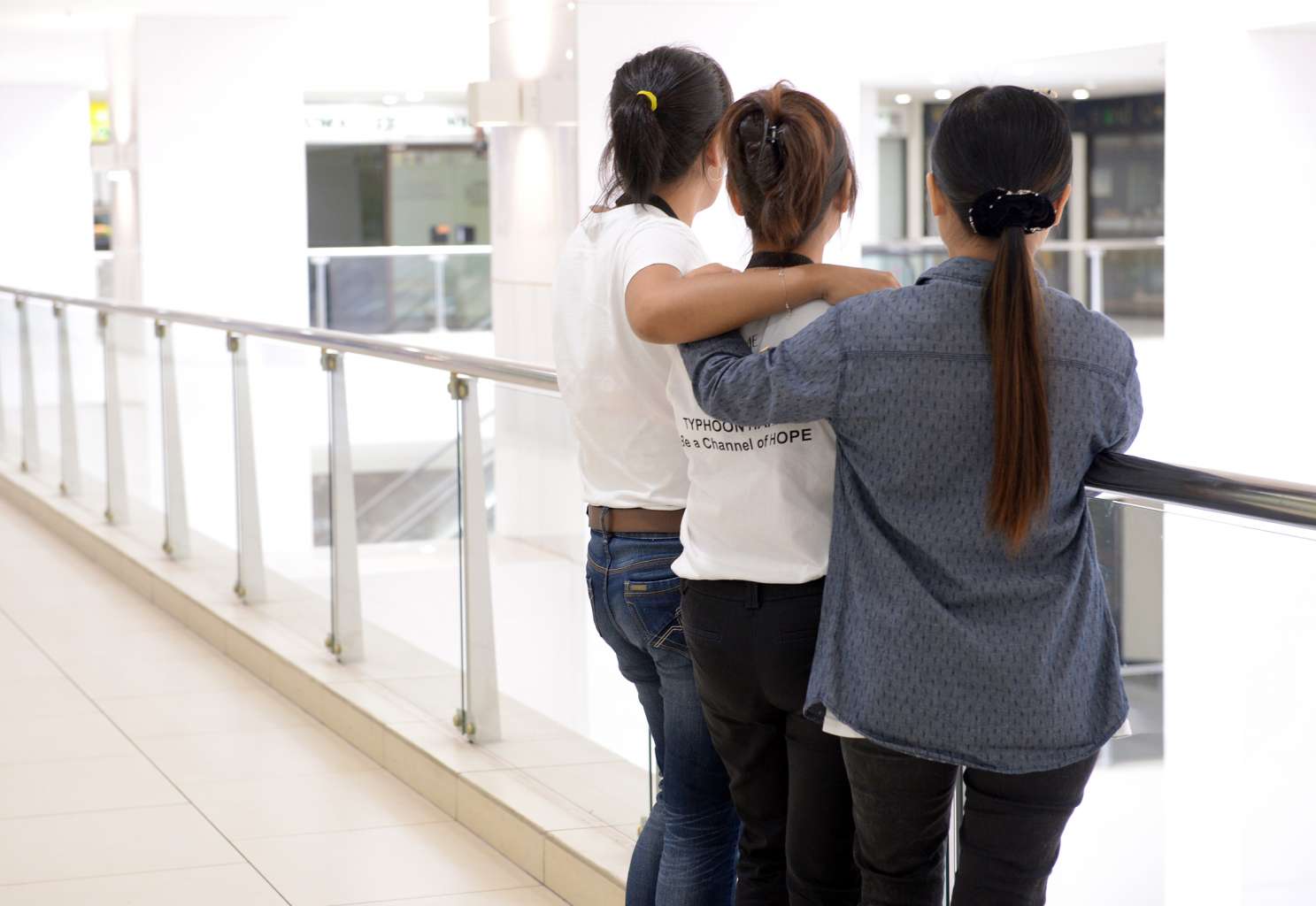Maids fear losing job when they get pregnant
Sex education could help them prevent unwanted pregnancies, say NGOs
Sign up now: Get ST's newsletters delivered to your inbox

Posed photo of foreign domestic workers.
PHOTO: ST FILE
Follow topic:
Fear. That was her friend's first reaction when she found out she was pregnant last year, said domestic helper Marie, whose friend is also a domestic worker.
"If her employer found out, she could be blacklisted and sent back to the Philippines. But her family needs her help financially," said Marie, who declined to name her friend. "She thought of losing the baby here."
But Marie and other friends chipped in to help the 37-year-old buy an air ticket home, where she gave birth.
Now, the baby boy is cared for by her family while she is back working in Singapore. Her boyfriend, an Indian construction worker here, helps to support them financially.
About 100 domestic helpers are reported to get pregnant each year, or less than 0.05 per cent of all such workers here, a spokesman for the Manpower Ministry (MOM) said.
-
Report case to MOM
If a domestic helper becomes pregnant, her employer is expected to report it to the Manpower Ministry (MOM).
Employers will not forfeit the security bond bought before the helper arrived if they prove that they reported the pregnancy when they were first aware of it.
They must also show they informed the domestic helper of the conditions of her work permit - which include not becoming pregnant unless she is already married to a Singapore citizen or permanent resident with the approval of MOM.
Employers bear the cost of any medical treatment incurred by their domestic workers and must buy medical insurance for them with a minimum cover of $15,000 per year.
The number has remained stable over the past five years although the number of maids has risen by about 10 per cent.
Non-governmental organisations (NGOs) and employment agents told The Straits Times that they see only a handful of pregnancy cases a year.
But, as in Marie's friend's case, more are likely unreported.
A domestic worker usually panics when she finds out she is pregnant, because she can lose her job.
This is because one of the conditions for a work permit is not becoming pregnant or giving birth here unless she is married to a Singaporean or permanent resident with the approval of MOM.
Dr Noorashikin Abdul Rahman, president of Transient Workers Count Too (TWC2), said: "They may be pushed to do things that are not quite wise, such as hiding the pregnancy and giving birth prematurely."
In October, a 33-year-old Indonesian maid was arrested after giving birth to a stillborn baby and hiding the foetus in a drawer in her employer's house.
Mr Tay Khoon Beng, owner of Best Home Employment Agency, said sometimes, the baby could have been conceived while the woman was on home leave.
There are also those who are married to other foreign workers in Singapore or abroad.
However, these women are sometimes still left to fend for themselves.
"Joy can become a disaster if the father disappears," said Ms Valli Pillai, director of casework at the Humanitarian Organisation for Migration Economics (Home).
Then there is the difficulty of facing the family back home if the baby is illegitimate.
Archdiocesan Commission for the Pastoral Care of Migrants and Itinerant People (ACMI) senior executive officer Elizabeth Tan said: "If they are single, they may be the talk of the town or the village, and the family's image will be affected."
Singapore has a mandatory settling-in programme for arriving first-time domestic workers.
An MOM spokesman said it teaches them about their rights and responsibilities, and informs them of available help channels.
He said: "The programme does not cover topics relating to sex education as these may potentially offend cultural and religious sensibilities, given that they come from different backgrounds."
However, NGOs said formal sex education could go some way towards helping maids understand how to protect themselves from unplanned pregnancies.
Home conducts health talks and gives out condoms at some of its events, said Ms Pillai.
TWC2's Dr Noorashikin said: "They should be given all the information needed to make a decision, just like any other adult."

